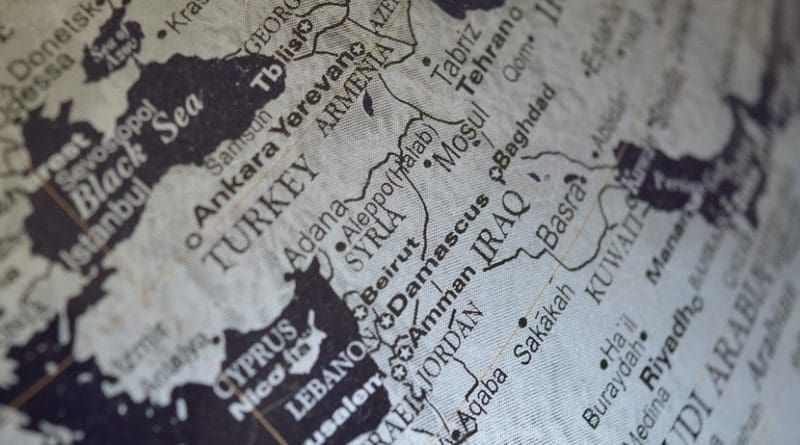Why Turkey Is Backing Iraq’s Bid For A New Regional Role – Analysis
By Arab News
By Sinem Cengiz*
Historically, relations between Ankara and Baghdad have been characterized by ups and downs in several eras. Turkey has acted as a crucial actor in developments that have played a role in Iraq’s political history.
Frameworks involving Turkey and Iraq have historical precedence. In 1937, Turkey and Iraq, along with Iran and Afghanistan, signed the Saadabad treaty to counteract possible Soviet influence in the region. Later, in 1955, both countries became part of a pact that involved Iran, Pakistan and Britain in order to bolster common interests in the region.
The agreement, initially known as Baghdad Pact, then evolved into the Central Treaty Organization. The Gulf War in 1990-91 and the Iraq War in 2003 marked significant points in Turkish-Iraqi relations, with Ankara playing diverse roles in each of the conflicts.
Over the past decade, Turkey has focused on projecting power in Iraq, a country facing political and economic problems, and involving several foreign actors.
Turkey, which has suffered from instability along its border with Iraq, including large-scale terrorist attacks and refugee flows, has engaged with the country both militarily and politically.
One of the fundamental forces driving Turkey’s Iraq policy is Baghdad’s failure to prevent Kurdistan Workers’ Party (PKK) terror attacks from within its territories against Turkey. The second driving force is the impact of the Syrian war and Iran’s rising influence.
Meanwhile, Iraq is striving to carve out a new role in the turbulent region through a balance in its foreign policy. With this aim in mind, Turkey seems to be one of the neighboring countries serving Iraq’s objectives.
In this context, cooperation against terrorism and on the economy have come to the fore as the most important topics in Turkish-Iraqi relations. Iraq represents the third-largest market for Turkish exports, worth $10.2 billion in 2019, and accounting for 5 percent of Turkey’s total exports.
Turkey’s activism in Iraq also includes development support, with Ankara, in 2019, announcing it will provide $5 billion in loans for the reconstruction of Iraq, a sign of its commitment to consolidating its influence in the country. Iraq and Turkey also will form a joint committee to resolve issues and enhance economic relations.
From the military viewpoint, since early 2020, Turkey has increased its activities in northern Iraq in a bid to eliminate PKK militants. Turkish operations have been viewed by Iran and its affiliates in Iraq as an attempt to dominate the Iraq-Turkey border zone and penetrate Iraqi politics.
Now that Iraq is entering a new era under Prime Minister Mustafa Al-Kadhimi, regional countries have rolled up their sleeves and are seeking to establish influence in the country. Since taking office in May 2020, Al-Kadhimi has sought to build good relations with Iraq’s neighbors and play a possible mediating role in regional disputes. The new premier hopes to erase the image of “a weak state” prone to external influences and meddling.
For weeks, media attention has been focused on the so-called Iraqi Neighboring Countries Conference, an upcoming summit to be held in Baghdad in an effort to defuse regional tensions. The forum, considered a litmus test of whether de-escalation talks in the region will bear fruit, is expected to focus on the war in Yemen, Lebanon’s collapse and a regional water crisis.
The Iraqi government has invited several countries, including Turkey, Iran, Egypt, Jordan, Kuwait and Saudi Arabia. The big question is, which countries will attend and with what level of representation. So far, Kuwait has been the only Gulf state to confirm its participation, with its prime minister due to join the talks. Iran has officially announced it will take part, while Egyptian President Abdel Fattah El-Sisi and Jordan’s King Abdullah also have said they plan to attend, as has French President Emmanuel Macron, the only official expected from outside the region.
It will be the first time Iraq has held such a conference since 1990, but it is also the latest effort stretching back to 2019 on the part of Iraq’s leadership as it seeks to be an effective force in the Middle East.
Iraq’s mediation efforts are noteworthy, but mediation is a complex process involving many variables. Baghdad’s success in its attempts to play a constructive role in the region will depend on how well it deals with its own internal issues, as well as the degree of support offered by regional countries.
Turkey, which has been affected by regional sectarian tensions, is likely to seek to benefit from Iraq’s peacemaking efforts and support its attempts to carve out a new role in the region.
- Sinem Cengiz is a Turkish political analyst who specializes in Turkey’s relations with the Middle East. Twitter: @SinemCngz

